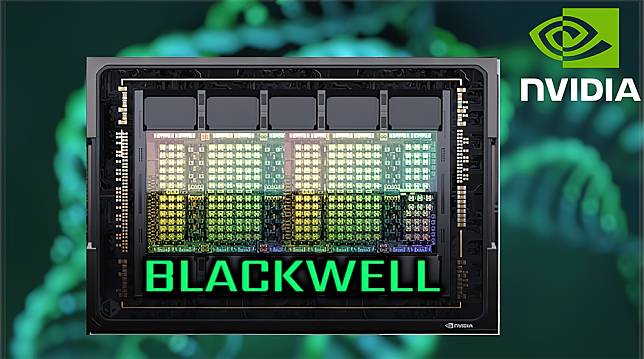As cloud computing and data centers accelerate the construction of AI systems, AI accelerators are swiftly becoming a critical component of the new era's hardware infrastructure. Faced with a multitude of technological solutions, cloud service and data center operators are tasked with making astute choices.
NVIDIA's Leading Position in AI Chips
NVIDIA, a frontrunner in the AI chip market, offers comprehensive AI infrastructure solutions. Leveraging the robust computational power of its GPUs, coupled with Arm CPUs, proprietary CUDA software ecosystems, and high-speed interconnect technologies such as Infiniband and NVLink, NVIDIA provides a one-stop service for customers to rapidly build high-performance AI applications.
In terms of computational capability for AI hardware, NVIDIA's GPUs remain versatile. Innovations in its latest Blackwell GPU architecture, particularly in generative AI application processing, have significantly enhanced performance. Equipped with large-capacity HBM memory, NVIDIA's AI hardware maintains a leading position in computation and bandwidth, garnering the favor of numerous cloud service providers and AI application companies.

NVIDIA's CUDA software ecosystem is another significant asset. Although it is a closed proprietary software stack, the vast developer community and application support behind it secure its dominant position in the industry.
Broadcom's Open Strategy Emerges as a Competitive Edge
In the meantime, Broadcom has made a notable impact on the AI chip market with its open strategy. Although renowned in the fields of networking and communications, Broadcom has also achieved significant success in the domain of custom chip design. By offering chip design services to cloud service providers, Broadcom has facilitated the launch of AI accelerator chips based on proprietary computational architectures, enabling rapid product iteration.
At a recent AI investor conference, Broadcom unveiled its new XPU chip, featuring a configuration of 12 stacked HBM memory modules that push the limits of TSMC's CoWoS-S packaging technology. This suggests that the memory capacity of the XPU chip may surpass that of NVIDIA's Blackwell GPU. This development indicates that manufacturers adopting the XPU chip, such as major cloud service providers like Microsoft and Meta, have an exceptionally high demand for AI performance.

Market forecasts predict that by 2024, AI will account for 35% of Broadcom's semiconductor business revenue, encompassing the mass production of customized ASIC solutions and products related to new customers. The growth in market demand is expected to drive AI chip revenue to a milestone of $10 billion. Google, a prominent customer of Broadcom, has collaborated on the development of the XPU chip, which has now evolved to the fifth generation TPU. Additionally, a new customer, reportedly a major consumer AI company, has joined the fray. Broadcom's ability to attract these partners is not only due to its extensive experience in AI IP and packaging technology but also its capability to offer a rapid development cycle from design to mass production in just 10 months.
Conclusion: The Prospects of Diversified Technological Paths
NVIDIA's GPUs and Broadcom's XPUs provide a variety of technological paths for the AI chip market. Large cloud service providers may adopt both of these technological routes simultaneously to meet the diverse needs of different customers and offer a range of server instances. Looking ahead, they may increasingly rely on their self-developed XPU paths to maintain competitiveness.
Other Notable Chip Recommendations in the Fast-Growing Market
Beyond the realm of AI chips, there are several other popular chips worthy of attention, showcasing excellent performance in specific domains:
● Intel/Altera Cyclone III Series EP3C25U256C8N FPGA: This programmable logic device plays a key role in communication systems and industrial automation due to its high flexibility and reconfigurability. Its powerful digital signal processing capabilities make it a top choice for hardware acceleration, and its embedded processing power also secures its position in embedded systems.
● Texas Instruments BQ24040DSQR Li-Ion Linear Charger: This highly integrated charger is designed for portable applications, powered by a USB port or AC adapter. It offers high-precision current and voltage regulation cycles, as well as charging status display functionality, and is widely used in TWS earbuds, smartwatches, wireless speakers, and mobile POS devices.
● Silicon Laboratories CP2120-GM SPI-to-I2C Bridge: As an I/O controller interface integrated circuit, the CP2120-GM provides an efficient solution for inter-device communication, data conversion, system integration, and expandability, particularly suitable for complex electronic systems that require data conversion between SPI and I2C interfaces.
Website: www.conevoelec.com
Email: info@conevoelec.com









